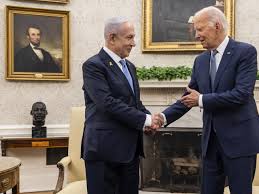Benjamin Netanyahu: Current Political Landscape and Implications

Introduction
Benjamin Netanyahu, the Prime Minister of Israel, has been at the forefront of Israeli politics for decades. His recent political maneuvers, particularly following the highly contentious judicial reforms and ongoing regional tensions, continue to shape the landscape of Israeli governance and international relations. Understanding Netanyahu’s actions is crucial for grasping the current political dynamics in Israel and the broader Middle East.
Recent Events
Since returning to office at the end of 2022, Netanyahu has faced significant challenges, including widespread protests against his government’s proposed judicial overhaul. The reforms aimed to limit the Supreme Court’s powers and increase governmental control, prompting fears over the erosion of democratic checks and balances. Public outcry has led to mass demonstrations, drawing hundreds of thousands of citizens to the streets in a display of opposition.
In response to these protests, Netanyahu paused the legislation for a period of public discourse, yet tensions remain high. Simultaneously, Netanyahu’s government has been navigating a precarious security situation with escalating violence in the West Bank and ongoing hostilities with Hamas in Gaza. Recent clashes have renewed calls for a more robust approach towards both internal and external security challenges.
International Relations
Netanyahu’s government also finds itself in a complex relationship with the United States and European nations. Despite longstanding support from former President Trump, the Biden administration has expressed concerns over Netanyahu’s actions regarding judicial independence and the treatment of Palestinians. This has led to a re-examination of aid and diplomatic approaches toward Israel. Furthermore, Netanyahu is tasked with addressing the Iran nuclear situation, which poses a significant threat to Israeli security and regional stability.
Future Implications
Looking ahead, Netanyahu’s leadership will be crucial in determining the future course of Israeli politics and its international relations. Analysts suggest that if the judicial reforms are permanently enacted, it could alter the political fabric of Israel and its democracy. Conversely, failure to unite the nation amidst increasing internal strife may result in a loss of support, potentially paving the way for alternative leadership.
In conclusion, Benjamin Netanyahu remains a polarising figure whose policies and decisions will greatly impact Israel’s democratic integrity and its geopolitical standing. As the situation evolves, observers are keenly watching how his government will respond to both domestic pressures and international expectations.









